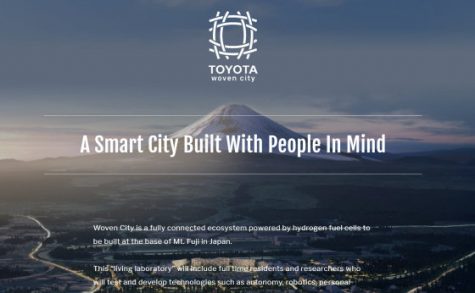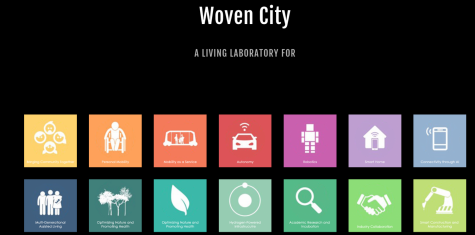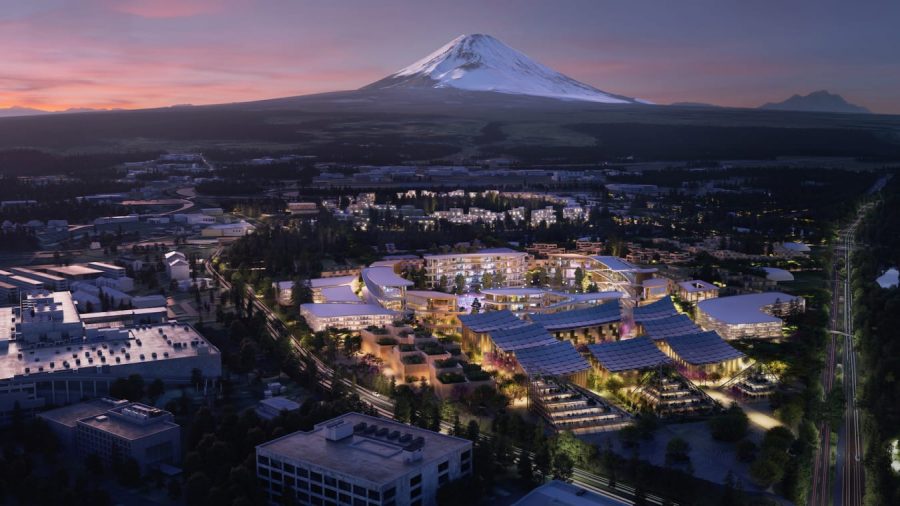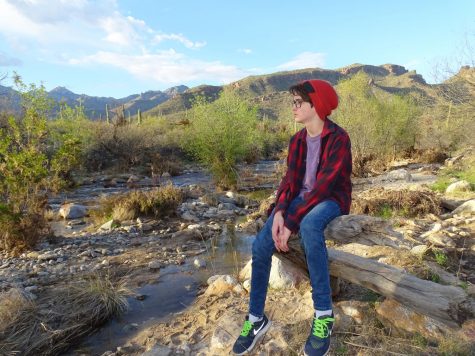Toyota Is Building a “City of The Future”
January 10, 2020
On January 6th, 2020, at the Consumer Electronics Show in Las Vegas, Toyota announced its plans to build a prototype “city of the future” at the base of Mt. Fuji in Honshu, Japan.

With technology consistently advancing and taking over so many parts of our everyday lives, the largest car company, Toyota, unveiled their plans to take advantage of new technology and build what they’re calling the “Toyota Woven City”. Toyota is transforming a 175-acre former factory site into their utopian smart city, with a heavy emphasis on autonomy, personal mobility, and applying cutting edge technology into our routine lives. Woven City, upon opening, will be home to about 2,000 people.

The city will be built on a unique grid system that gives equality to all types of transportation. They split the typical street into three different ones for each type of transportation. The first will be for faster transportation, or cars that will be completely autonomous with no emissions. This road type will have trees and provide a natural distinction between cars and pedestrians. The second will be an urban promenade or a wide road shared by pedestrians and slower personal mobility (bicycles, segways, electric scooters, etc.). The final street type will be solely for pedestrians and contains a park with a linear pathway for transportation on feet. These types of streets will all be woven together to create “a grid of three by three city blocks that frame their park or courtyard.”
The city is being built on top of an underground infrastructure that will contain a hydrogen power storage that will provide power for the city. This infrastructure will also contain the city’s water supply and necessary plumbing, as well as an autonomous delivery system that connects to the houses in the city.
The houses will be a “test-site for new technology,” containing in-home robotics to assist with daily life. Woven City’s main architect stated, “These smart homes will take advantage of full connectivity using sensor-based AI to do things automatically, like restocking your fridge, or taking out your trash — or even taking care of how healthy you are.”
“In an age when technology, social media, and online retail is replacing and eliminating our natural meeting places, the Woven City will explore ways to stimulate human interaction in the urban space,” he said. “After all, human connectivity is the kind of connectivity that triggers well-being and happiness, productivity and innovation.”
Toyota’s Woven City will be a real-world test site for cutting edge technology and plans to use it in a way that will bring us together more than ever before. Construction will begin in early 2021, however, no estimated date for completion was given.












